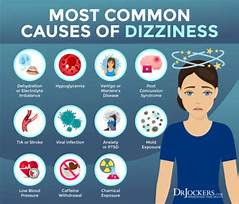These Usual Vitamin Problems May Lead to Fatigue, Thirst, and Liver Poisoning
Have you ever taken a multivitamin in the hopes of feeling better only to end up feeling more bloated, dehydrated, or exhausted? You're not by yourself. Ironically, simple vitamin errors can result in major health hazards including liver poisoning, persistent weariness, and excessive thirst, despite the fact that vitamins are necessary for good health. And if you're not cautious, these errors can also have an impact on children's health, particularly when you give them vitamins without knowing what they need.
This blog article will discuss some of the most frequent vitamin errors made by adults (and parents), their effects on the body, and more intelligent methods to use responsible nutrition to safeguard both your health and the health of your children.
This blog article will discuss some of the most frequent vitamin errors made by adults (and parents), their effects on the body, and more intelligent methods to use responsible nutrition to safeguard both your health and the health of your children.
1. Fat-Soluble Vitamin Overdosage: A Quiet Danger to Your Liver
The liver and fatty tissues are where fat-soluble vitamins like A, D, E, and K are kept. Your body does not eliminate extra vitamins through urine, in contrast to water-soluble vitamins like vitamin C and the B complex. This implies that overconsumption might build up and eventually become harmful.The Impact This Has on You and Your Children:
- Pregnant women who have vitamin A toxicity (hypervitaminosis A) may have headaches, impaired vision, liver damage, bone loss, and possibly birth abnormalities.
- Overdosing on vitamin D can result in renal damage, nausea, vomiting, and in severe situations, organ calcification.
- Due to their smaller and more delicate bodies, children who get high-dose vitamin supplements or extra cod liver oil without a doctor's advice are more vulnerable.
📌 Advice: Read labels carefully. Before taking a supplement, consider whether you already eat foods that have been fortified in your diet. A pediatrician should be consulted before administering any vitamin supplements to children.
✅ Keyword usage: The belief that "more is better" is one of the most prevalent vitamin blunders; nevertheless, fat-soluble vitamins can actually subtly impair your liver and general well-being.
✅ Keyword usage: The belief that "more is better" is one of the most prevalent vitamin blunders; nevertheless, fat-soluble vitamins can actually subtly impair your liver and general well-being.
2. Ignoring the Signs of Vitamin Toxicity: Fatigue, Thirst, and More
While vitamin overdoses also have warning signals and are sometimes misunderstood, we tend to link vitamin deficiency with symptoms. An overloaded system may be indicated by persistent exhaustion, increased thirst, frequent urination, irritation, and even muscular weakness.
What's Taking Place in the Body?
- Fatigue, tingling, and nerve damage can result from taking too much vitamin B6.
- Overdosing on niacin (B3) can cause flushing, liver damage, and thirst.
- Excessive vitamin C intake can cause renal stress, which can result in kidney stones or dehydration.
✅ Keyword usage: Adults and children's health are impacted by some of the most prevalent vitamin errors that go unrecognized until they result in symptoms like thirst and exhaustion.
3. Using a variety of supplements without examining any potential overlap
One more risky habit? adding layers of vitamins. If you take a calcium pill, a hair, skin, and nail booster, and a multivitamin, you may discover that you have unknowingly increased your daily consumption of vitamin D by three times.The Risks in Real Life:
- A lot of supplements include overlapping nutrients, which might result in dangerously high amounts of several vitamins when taken together.
- If you take magnesium, a multivitamin, and a sleep aid, for example, you may push magnesium well past the acceptable upper limit, which can lead to cardiac issues, nausea, and diarrhea.
- Children may have vitamin A or iron overload if they consume chewable vitamins together with fortified cereal, drinks, or gummy supplements.
📌 Advice: Don't combine vitamins without a doctor's advice; treat them like prescription drugs. This is crucial advice for children's health as well as adults.
✅ Keyword usage: Stacking numerous pills without understanding they contain the same chemicals is one of the most common vitamin blunders, and it may be particularly harmful to children's health.
✅ Keyword usage: Stacking numerous pills without understanding they contain the same chemicals is one of the most common vitamin blunders, and it may be particularly harmful to children's health.
4. Following Internet Trends Mindlessly Without a Blood Test
Why This Is Risky:
- Supplements should not "boost" already optimal levels; rather, they should address inadequacies.
- Hypercalcemia, which can result in kidney stones, nausea, and dehydration, can occur in people with normal vitamin D levels who take high-dose supplements.
- Although biotin is safe when taken in tiny amounts, it might cause errors in thyroid testing and other laboratory procedures.
📌 Parents: Unless a doctor recommends it, don't assume your children require vitamins. They have distinct dietary requirements, and too much of a good thing may be harmful.
✅ Keyword usage: One of the most frequent vitamin errors is to heed unreliable internet advice, particularly when it jeopardizes children's health and throws off the body's natural equilibrium.
✅ Keyword usage: One of the most frequent vitamin errors is to heed unreliable internet advice, particularly when it jeopardizes children's health and throws off the body's natural equilibrium.
5. Ignoring the Sources of Food and Fortified Products
Many individuals overlook the fact that we already consume vitamins through our diet, particularly if they consume packaged snacks, milk, orange juice, or fortified cereals. Supplementing on top of this might push you above safe levels.- 100% of the recommended daily allowance of vitamin C may be present in a glass of fortified orange juice.
- Iron, B12, and vitamin D are frequently found in breakfast cereals; when taken in combination with supplements, these nutrients may be consumed in excess.
📌 A Better Approach: Monitor your daily consumption of both food and supplements. Use dietary monitoring apps or keep a journal.
✅ Keyword usage: One of the most frequent vitamin errors that can endanger your health, and the health of your children is ignoring dietary sources.
✅ Keyword usage: One of the most frequent vitamin errors that can endanger your health, and the health of your children is ignoring dietary sources.
In summary, be knowledgeable but not overburdened.
Ironically, typical vitamin errors can result in liver damage, chronic weariness, and dehydration, even though vitamins are necessary for optimum health. This is especially true when we overdose, mix the wrong supplements, or disregard what is already in our diet.- Not all vitamins are safe; some can build up and become harmful.
- Keep an eye out for mild symptoms of overdosing, such as thirst, nausea, exhaustion, or skin problems.
- Consult specialists and get blood work done before mindlessly following supplement trends.
- Before taking additional medications, consider what is in your diet.
- Supplements should only be used under a doctor's supervision for children's health.
Keep in mind that moderation is preferable to excess. Supporting your body rather than overtaxing it is the aim. Whether you're concerned about your own health or the health of your children, using vitamins responsibly will help you steer clear of these frequent yet harmful errors.
✅ Last keyword usage: Learning about frequent vitamin errors can help you maintain robust health and improve your children's health.
✅ Last keyword usage: Learning about frequent vitamin errors can help you maintain robust health and improve your children's health.










Comments
Post a Comment